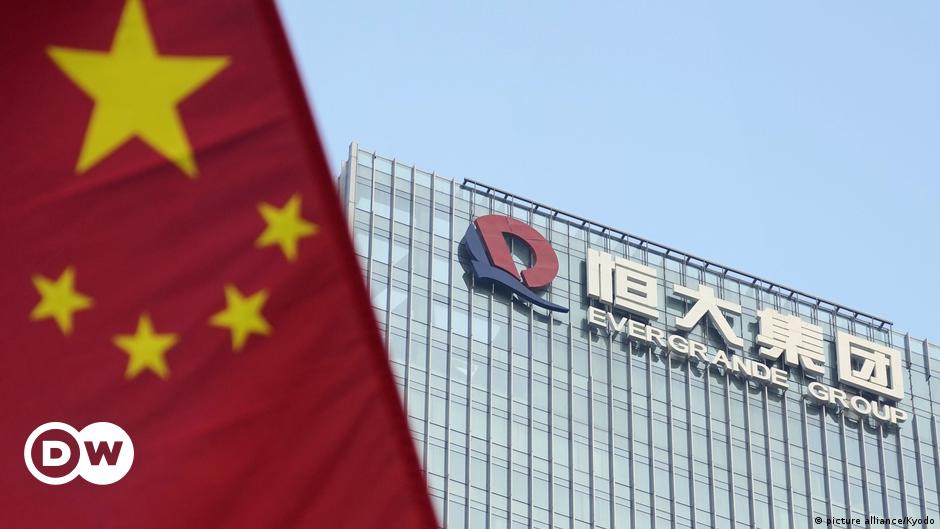Troubled real estate developer China Evergrande could be liquidated as early as Monday as a Hong Kong court hears a liquidation petition against the company from foreign creditors.
The suit is being brought by Samoa-registered Top Shine Ltd., an investor in one of Evergrande’s subsidiaries.
Reuters reported this week that a group of offshore bondholders also planned to join a petition calling for the company’s assets to be liquidated.
China’s crackdown three years ago on two decades of real estate speculation deepened the real estate crisis, leaving Evergrande with $300 billion (277 billion euros) in debt.
Months later, the company defaulted on its offshore debt, and a debt restructuring proposal was rejected by creditors last month.
The liquidation hearing was postponed to January after Evergrande’s lawyers argued that no creditors wanted to liquidate the company, which has $240 billion in assets.
However, the judge warned that in the absence of a “concrete” reorganization plan, this hearing would be the last before a decision on whether to issue a liquidation order.
In a sign that liquidation is imminent, Bloomberg News reported this week that the court is expected to seek a potential regulatory order on Monday.
What will happen if Evergrande goes into liquidation?
First, the lawsuit is expected to test whether a liquidation order issued in Hong Kong will be recognized in mainland China.
Hong Kong’s common law system has survived the former British colony’s handover to China in 1997 and is favored by foreign creditors when recovering mainland debts.
Two years ago, the Chinese government agreed to recognize Hong Kong’s bankruptcy order for the Chinese cities of Shenzhen, Shanghai and Xiamen.
In reality, however, the liquidation order was difficult to enforce due to China’s opaque legal system.
Mainland courts have so far granted only one such order and have discretion over whether a finding is legitimate.
If the order is accepted by a Chinese court, Evergrande will be placed in the hands of liquidators who will attempt to sell assets to pay creditors.
If the liquidator determines that the company has sufficient assets, it may propose a new debt restructuring plan to offshore creditors.
It will also investigate the company’s issues and may refer any suspected wrongdoing to Hong Kong prosecutors.
Several other Chinese development companies are facing liquidation orders in Hong Kong courts in the coming months.
What is the impact on China’s economy?
Evergrande’s liquidation would be a major setback for the world’s second-largest economy, which is already struggling to recover from strict zero-coronavirus policies that shut down large parts of the country during the pandemic.
China’s real estate sector has been a major driver of growth for the past two decades, helping Beijing’s leaders achieve double-digit economic growth at times.
In comparison, China’s economy grew by just 5.3% last year due to weak exports and domestic demand, high youth unemployment and a worsening real estate crisis.
But in recent years, several other real estate developers have been pushed into bankruptcy as construction company spending has fallen by 10% annually for two consecutive years.
Last year, sales of new homes by the 100 largest real estate companies fell by more than a third to 451.3 billion yuan ($64 billion, 59 billion euros).
The country’s local governments, which rely on real estate sales to shore up their budgets, are also deeply in debt and have been forced to cut spending.
Much of the $300 billion owed by Evergrande was deposits paid by ordinary Chinese citizens for new apartments.
It is unclear whether they will be given priority over foreign creditors in the event of liquidation.
Most economists already predict that China’s growth will slow in 2024. A worsening real estate crisis could further reduce demand and shake up the country’s financial system.
Oxford Economics estimated last month that it would take four to six years to complete all unfinished residential properties.
Why is China’s real estate sector in trouble?
China is a country of homeowners. Approximately 80% of households own their home, and more than 20% of urban households own more than one property.
Over the past two decades, Chinese consumers have poured their savings into real estate investments, and profits for developers have soared.
Speculation has driven real estate prices to unaffordable levels. By 2021, the average new home price in the city will be nearly 10 times his average salary.
Many economists say the massive real estate bubble was allowed to fester for too long before the Chinese government took action.
In August 2020, amid the pandemic, Chinese President Xi Jinping announced new limits on the amount of debt that Evergrande and other developers could accumulate.
Mr. Xi’s so-called “three big red lines” are that enterprises must ensure that debt does not exceed 70% of assets, that net debt remains less than 100% of equity, and that financial reserves are 100% of short-term debt. This meant that they had to ensure that they stayed in the country.
The new curb revealed the scale of what has been described as a huge Ponzi scheme that Evergrande was operating. For years, the company has used deposits from future real estate developments to fund current construction projects.
Editor: Christy Pradson
